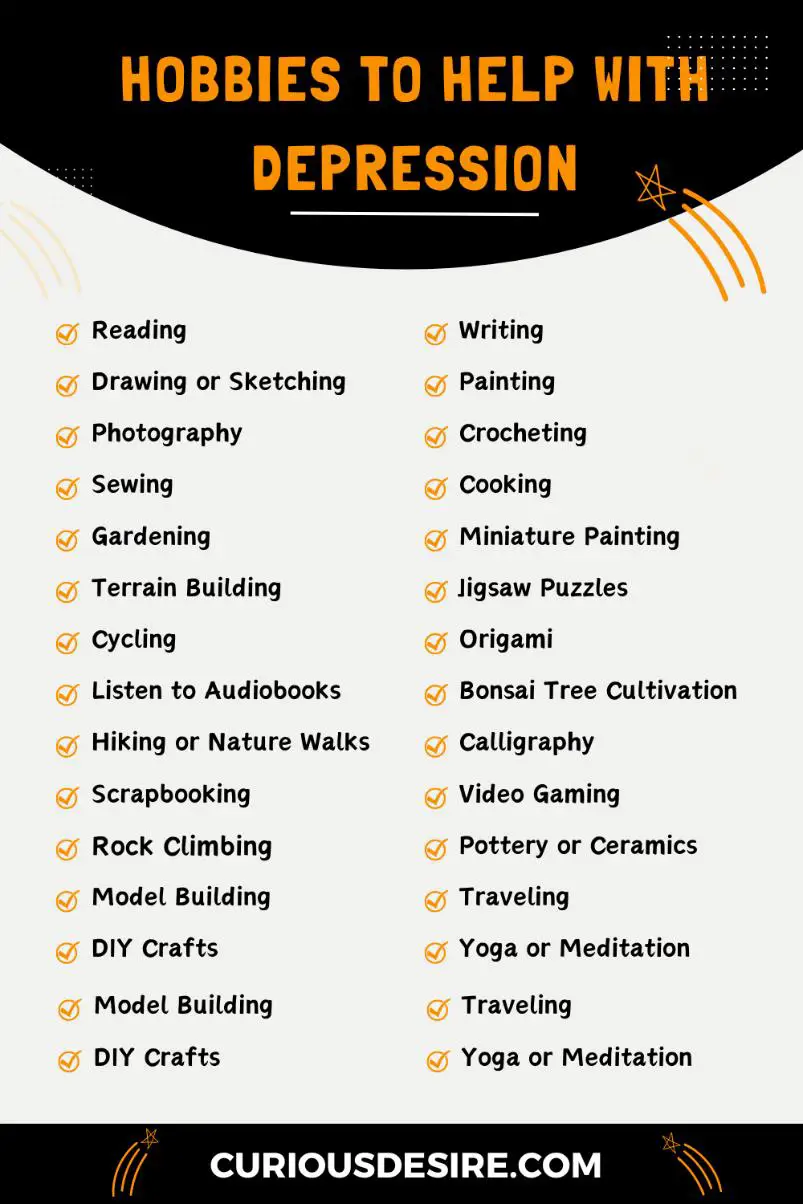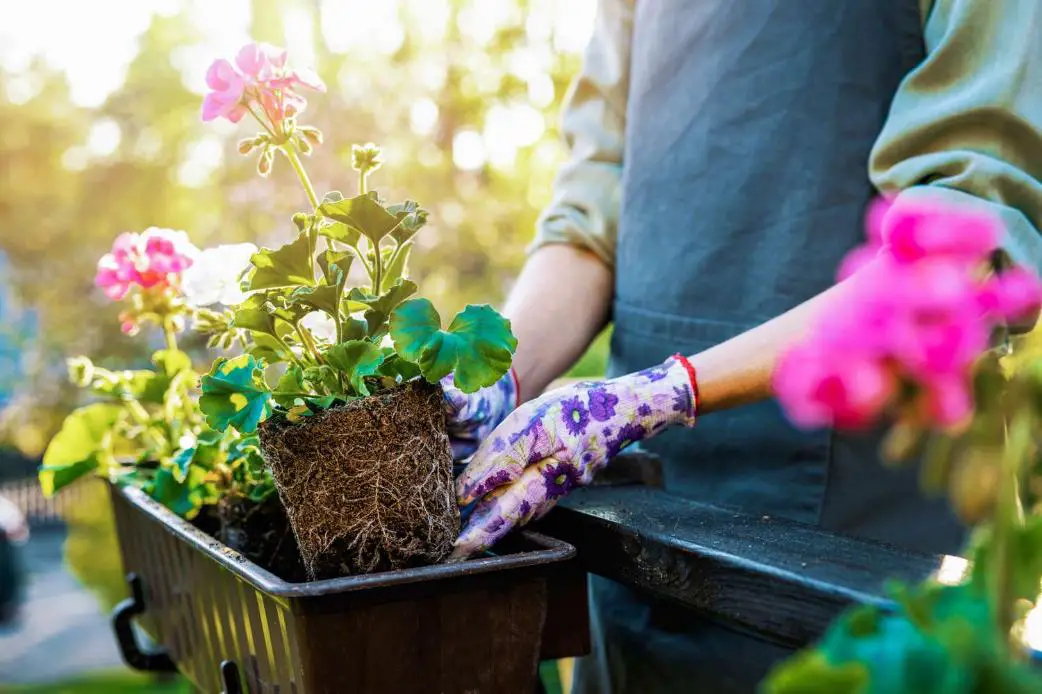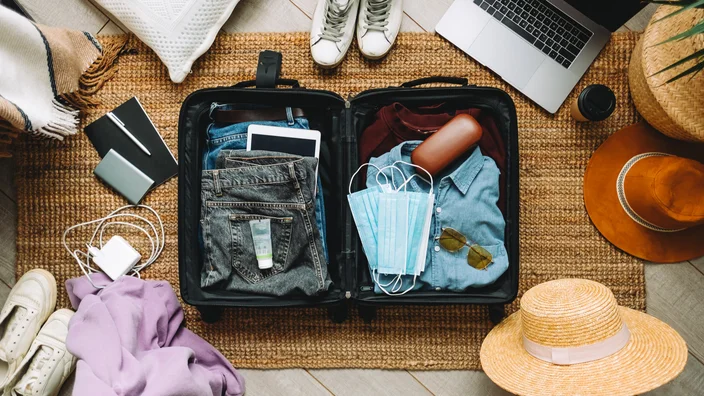Coping with depression requires effective strategies, and engaging in hobbies has proven to be a valuable path for self-expression and well-being.
Beyond mere pastimes, these activities serve as therapeutic tools, offering an enjoyable escape and contributing to personal growth.
In this article we will discuss a range of hobbies known for their positive impact on mental health, providing constructive ways to navigate the complexities of emotions and overcome the challenges of depression.
Here are the top 5 hobbies to help with depression:
- Writing
- Reading
- Traveling
- Gardening
- Pottery or Ceramics
[toc]

Hobby 1: Reading
Reading is a versatile and enriching hobby that opens doors to different worlds and perspectives. Whether immersing in fiction, non-fiction, or poetry, it offers an escape and a chance to explore new ideas.
Reading serves as a healthy distraction, allowing individuals to take a mental break from their challenges promoting relaxation, and reducing stress.
Readers often find a sense of connection and understanding, combating feelings of loneliness or isolation that can contribute to depression.
Hobby 2: Writing
Expressing oneself through writing, whether in a journal, poetry, or fiction, can be a therapeutic outlet. Writing allows individuals to express their thoughts and emotions, providing a tangible record of their experiences.
The creative process can enable individuals to confront and process difficult feelings. In addition to personal growth, writing can provide a sense of achievement as individuals see their ideas take shape on paper.
Sharing written work, whether with others or privately, creates a source for communication and connection, reducing the sense of isolation often associated with depression.
Hobby 3: Drawing or Sketching
Engaging in drawing or sketching is a visual and tactile hobby that encourages self-expression. It doesn’t require formal training; anyone can pick up a pencil and start creating.
Through the act of drawing, individuals can externalize their emotions, turning abstract feelings into tangible art pieces. The meditative nature of sketching allows for a calming focus, helping to alleviate stress and anxiety.
Additionally, the sense of accomplishment that comes from completing a drawing boosts self-esteem, contributing positively to one’s mental well-being.
Hobby 4: Painting
Similar to drawing, painting is a visually stimulating hobby that allows for creativity and expression. Whether using watercolors, acrylics, or oils, individuals can experiment with different techniques and styles.
The process of mixing colors and bringing a blank canvas to life can be therapeutic, providing a sense of achievement and purpose.
Painting serves as a non-verbal form of communication, allowing individuals to convey their emotions and experiences without the need for words.
This form of artistic expression is a positive outlet for emotions, potentially reducing symptoms of depression.
Hobby 5: Photography
Photography is a hobby that encourages individuals to see the world through a different lens, both figuratively and literally.
Capturing moments and scenes through photography allows for a unique perspective on everyday life. The act of framing and composing shots promotes mindfulness, encouraging individuals to be present in the moment.
Engaging in photography often becomes a personal journey of self-discovery and connection, contributing to a sense of purpose and joy.
Hobby 6: Knitting or Crocheting
Knitting or crocheting is a hands-on hobby that combines creativity with a sense of accomplishment. Working with yarn and needles allows individuals to create tangible, functional items such as scarves, blankets, or clothing.
The rhythmic and repetitive nature of these crafts induces a state of relaxation and mindfulness, similar to meditation.
The focus required in knitting or crocheting can provide a welcome distraction from negative thoughts, promoting a sense of calm and well-being.
Hobby 7: Sewing
Sewing is a practical and rewarding hobby that involves creating garments or craft projects with fabric and a needle. Beyond the tangible outcomes, sewing offers a meditative and mindful experience.
The concentration required for precise stitching can be calming, helping individuals to temporarily shift their focus away from intrusive thoughts associated with depression.
Creating something with one’s hands provides a sense of accomplishment and self-efficacy, reinforcing a positive mindset.
Hobby 8: Cooking or Baking
Cooking or baking is a fun hobby where you get to make and enjoy yummy food. Trying out new recipes lets you express yourself and feel proud when you make something tasty.
When you’re in the kitchen, concentrating on cooking helps you focus on the present moment. This can be like a calming activity, taking your mind away from any sad thoughts.
And when you share the food you make with others, it helps you connect with people, which is good for not feeling alone, especially when you’re dealing with feeling down.
Eating the delicious meals you create also makes you happy and satisfied. So, cooking or baking isn’t just about making food; it’s about having a good time, feeling accomplished, and being with others.
Hobby 9: Gardening
Gardening is like a hobby where you take care of plants and spend time in nature. When you plant, weed, and take care of your garden, it’s like doing exercise and breathing fresh air, which is good for your overall well-being.
Taking care of plants gives you a sense of responsibility and a feeling of purpose. It’s like watching your plants grow and do well, and that can make you feel happy and accomplished, even when things might seem tough.
Seeing flowers bloom or growing your food can bring joy, and it’s like a little victory that fights against feelings of hopelessness, which is something people often feel when they’re dealing with depression.
Hobby 10: Miniature Painting
Painting miniatures is like a detailed and careful hobby where you paint small models, usually for tabletop games. It needs you to pay close attention and be precise, making it a creative way to keep your mind busy.
Painting these tiny models can feel like a calming and meditative activity, giving you a break from everyday challenges. The focus you put into each detail helps distract your mind and lets you enjoy the artistic process.
Hobby 11: Terrain Building
Terrain building is a hobby closely related to miniature painting, involving the creation of three-dimensional landscapes and settings for tabletop games.
This hands-on activity allows individuals to construct imaginative and immersive environments. The process of planning and building terrains provides a sense of control and accomplishment.
Engaging in this hobby often leads to a sense of pride as individuals see their tabletop worlds come to life, contributing positively to their mental well-being.
Hobby 12: Jigsaw Puzzles
Jigsaw puzzles are a classic and accessible hobby that challenges the mind while promoting relaxation.
The process of fitting together individual pieces to create a complete picture engages cognitive skills and problem-solving abilities. Puzzles serve as a mindful activity, requiring concentration and patience.
This simple yet effective hobby offers a low-stakes challenge that can help distract from negative thoughts and provide a mental break from the pressures of daily life.
Hobby 13: Cycling
Cycling is a physical hobby that combines exercise with the enjoyment of the outdoors. Whether cycling on scenic trails or through urban landscapes, this activity offers a dual benefit of physical fitness and mental well-being.
The rhythmic motion of pedaling can be therapeutic, promoting stress relief and a sense of relaxation.
Additionally, cycling provides a change of scenery, exposing individuals to nature and fresh air, both of which contribute to improved mood.
Engaging in regular cycling routines can establish a healthy habit that positively impacts overall mental and physical health, making it a valuable tool for managing depression.
Hobby 14: Origami
Origami, the art of paper folding, is a mindful and creative hobby that requires patience and precision. This Japanese tradition involves transforming a flat sheet of paper into intricate sculptures through folding techniques.
The focused, repetitive nature of origami can be a calming and meditative practice. Creating delicate and beautiful paper structures provides a sense of mastery, boosting self-esteem.
Origami is an accessible hobby that requires minimal materials, making it an ideal option for those seeking a low-cost and portable creative outlet to help alleviate symptoms of depression.
Hobby 15: Listen to Audiobooks
Listening to audiobooks is like having a hobby that mixes the joy of storytelling with the ease of using audio technology.
Audiobooks are a flexible way to enjoy books, especially for those who might find reading a bit tricky.
When you listen to an audiobook, it’s like being taken on a journey by the person narrating the story. This can be a comforting and exciting experience, as it transports you to different places through the power of their words.
What’s great about audiobooks is that you can enjoy them while doing everyday tasks. It turns routine activities into times for entertainment and learning.
This hobby is especially helpful for those dealing with depression because it offers a pleasant way to escape, relax, and enjoy stories without the need to read physically.
Hobby 16: Bonsai Tree Cultivation
Growing bonsai trees is like having a hobby that needs patience and deep thought. It’s an ancient Japanese art where you take care of and shape tiny trees.
Doing this art form requires paying close attention to every detail and forming a strong connection with nature. Taking care of bonsai trees isn’t just a short-term thing; it’s a long-term commitment.
As you watch your bonsai tree change and get better over time, it’s like seeing the positive results of your hard work.
This process becomes a symbol of personal growth and overcoming difficulties, showing that with patience and consistent effort, good things can happen.
Hobby 17: Hiking or Nature Walks
Hiking or nature walks involve exploring natural landscapes, providing a refreshing escape from the stresses of daily life.
The physical activity of hiking releases endorphins, contributing to improved mood and reduced feelings of anxiety and depression.
Immersing oneself in nature offers a change of scenery, promoting a sense of tranquility and connectedness with the environment.
The rhythmic movement of walking can be meditative, allowing individuals to clear their minds and focus on the present moment.
Hiking also provides an opportunity for social interaction, as it can be enjoyed alone or with friends.
Hobby 18: Calligraphy
Calligraphy is an artistic hobby that involves the careful and skillful creation of beautiful handwriting. This practice precision with creativity, allows individuals to express themselves through the art of writing.
Engaging in calligraphy encourages mindfulness, as the focus required for each stroke promotes a sense of calm and concentration.
The deliberate and rhythmic movements associated with calligraphy can be meditative, providing a therapeutic outlet for stress and anxiety.
Hobby 19: Scrapbooking
Scrapbooking is a crafty and heartfelt hobby where you put together and decorate a personal journal or album using pictures, keepsakes, and artwork.
When you organize and arrange things in your scrapbook, it’s like expressing yourself and being creative.
Doing scrapbooking helps shift your focus towards happy memories, which is good for pushing away negative thoughts linked with depression.
It also provides a chance to connect with others over shared memories and experiences, creating special moments.
Hobby 20: Video Gaming
Video gaming is a popular and immersive hobby that provides entertainment, challenges, and social interaction. Engaging in video games offers an escape from reality, allowing individuals to explore virtual worlds and narratives.
Hobby 21: Rock Climbing
Rock climbing is like a workout for both your body and mind, where you climb up real or man-made rock walls. It’s not just about strength; it also needs you to concentrate.
Climbing requires you to use your whole body, making it a great exercise. But it’s not just physical – you also have to solve problems and stay focused on the climbing routes.
This focus helps take your mind away from negative thoughts, like a break from them. Setting goals in climbing and reaching them is a big part of the hobby.
It’s not just about reaching the top; it’s about challenging yourself and feeling accomplished.
Hobby 22: Pottery or Ceramics
Pottery or ceramics is a hands-on hobby where you shape and mold clay to create things, whether they’re functional or just for decoration.
You use techniques like throwing, coiling, or hand-building to turn a lump of clay into something special.
This hobby needs you to be patient, making it a therapeutic way to relieve stress. When you’re working with the clay, feeling its texture, it’s like engaging your senses in a mindful and calming experience.
Hobby 23: Model Building
Model building encompasses constructing detailed replicas of vehicles, aircraft, or ships using model kits. This meticulous and detailed hobby requires precision and patience.
The process of assembling and painting models provides a focused and absorbing activity, diverting attention away from negative thoughts.
Hobby 24: Traveling
Traveling is a transformative hobby that involves exploring new places, cultures, and experiences.
Whether it’s a short weekend getaway or an extended international trip, traveling provides a break from routine and introduces individuals to diverse perspectives.
Experiencing different cultures, cuisines, and landscapes can be enriching and broaden one’s outlook on life.
The excitement and anticipation of planning a trip contribute to positive emotions, and the memories created during travel can serve as a source of joy and fulfillment.
Hobby 25: DIY Crafts
Engaging in do-it-yourself (DIY) crafts involves creating handmade items, such as decorations, cards, or gifts. This hobby encourages creativity and self-expression through a variety of materials and techniques.
DIY crafts provide a productive and fulfilling way to spend leisure time, offering a sense of accomplishment as individuals see their creations come to life.
The act of crafting can be a relaxing and meditative experience, allowing individuals to focus on the process rather than stressors.
Hobby 26: Yoga or Meditation
Yoga and meditation are practices that focus on enhancing both physical and mental well-being through mindfulness and relaxation.
In yoga, a combination of physical postures, breath control, and meditation techniques are employed to promote flexibility, strength, and inner peace.
The mindfulness aspect of these practices involves being fully present in the moment, allowing individuals to cultivate a heightened awareness of their thoughts and sensations.
Regular yoga and meditation sessions can lead to reduced stress levels, improved concentration, and an increased sense of overall calmness.
Hobby 27: Fishing
Fishing is a peaceful and thoughtful hobby that involves spending time near the water, whether it’s a quiet lake, river, or ocean. Fishing demands patience and concentration as individuals await the elusive catch.
This waiting time offers a chance for reflection and an opportunity to distance oneself from the pressures of daily life. The rhythmic actions of casting and reeling can be soothing, creating a sense of unity with the natural world.
Fishing also provides an immersive outdoor experience, exposing individuals to the calming influence of water and the surrounding environment.
The blend of solitude, connection with nature, and the excitement of a potential catch contributes to the therapeutic advantages of fishing for mental well-being.
Hobby 28: Bird Watching
Bird watching is a tranquil and mentally engaging hobby that revolves around observing and identifying different bird species in their natural surroundings.
This activity helps individuals to take a slower pace, encouraging an appreciation for the beauty of nature. Bird watching demands attentiveness and patience as enthusiasts learn to recognize various birds by their distinctive features and behaviors.
Participating in this hobby promotes mindfulness by directing attention to the present moment.
Hobbies To Help With Depression – FAQs
1. Do hobbies help with depression?
Engaging in hobbies can be beneficial for individuals experiencing depression. Hobbies provide a distraction, and a sense of accomplishment, and can contribute to a person’s overall well-being.
Activities that involve creativity, physical movement, and social interaction are often recommended.
2. What activities should I do with a depressed person?
Consider gentle, enjoyable activities that can be adapted to the individual’s comfort level. Examples include:
- Going for a walk or gentle hike
- Watching a movie together
- Trying out a new hobby, like painting or gardening
- Cooking a meal together
- Participating in a low-key exercise class, such as yoga
3. What hobbies release serotonin?
Certain hobbies and activities can contribute to the release of serotonin, a neurotransmitter associated with mood regulation.
These may include:
- Exercise, particularly aerobic activities like jogging or cycling
- Sunlight exposure
- Meditation and mindfulness practices
- Engaging in creative pursuits like art or music
4. Which activity would be best for a depressed patient?
The best activity for a depressed patient depends on their preferences and comfort levels.
Generally, incorporating a mix of activities such as light exercise, creative pursuits, and social interactions can be beneficial.
It’s important to tailor activities to the individual’s interests and gradually introduce new ones.
5. What are easy exercises for people with depression?
Simple exercises suitable for individuals with depression include:
- Walking
- Swimming
- Gentle yoga or stretching
- Tai chi
- Low-impact aerobics These exercises are physically beneficial and can contribute to improved mood and mental well-being.
6. What are easy workouts for depressed people?
Easy workouts for people dealing with depression might include:
- Stationary cycling
- Bodyweight exercises (e.g., squats, lunges)
- Lightweight strength training
- Water aerobics Starting with short sessions and gradually increasing intensity can make the workouts more manageable.
7. What lifts his depression?
Different activities may lift depression for different individuals. Engaging in activities that bring joy, a sense of accomplishment, and social connection can contribute to lifting depression.
This could involve hobbies, exercise, spending time with loved ones, or seeking professional support.
8. Is the gym good for depression?
Yes, going to the gym can be beneficial for depression. Exercise, especially in the form of regular gym workouts, has been shown to have positive effects on mood and can help alleviate symptoms of depression.
It promotes the release of endorphins, which are known as “feel-good” neurotransmitters.
9. What exercises reduce stress and depression?
Exercises that are effective in reducing stress and depression include:
- Cardiovascular exercises (running, cycling, swimming)
- Mind-body exercises (yoga, tai chi)
- Resistance training
- Regular, moderate-intensity physical activity These exercises contribute to the release of neurotransmitters and hormones that positively impact mood and stress levels.
10. Do push-ups help depression?
Yes, incorporating push-ups into a regular exercise routine can help with depression.
Exercise, including bodyweight exercises like push-ups, promotes the release of endorphins, which can have a positive impact on mood and alleviate symptoms of depression.
11. How fast does exercise work for depression?
The timeframe for experiencing the positive effects of exercise on depression varies from person to person.
Some individuals may notice improvements in mood shortly after beginning a regular exercise routine, while for others, it might take several weeks.
Consistency is key, and incorporating exercise as part of a holistic approach to mental health is recommended for long-term benefits.



